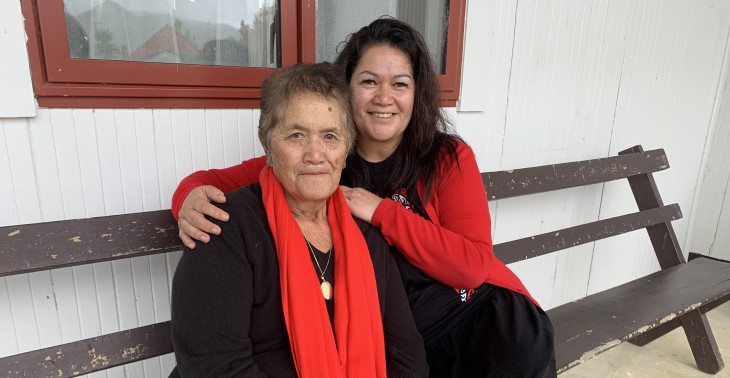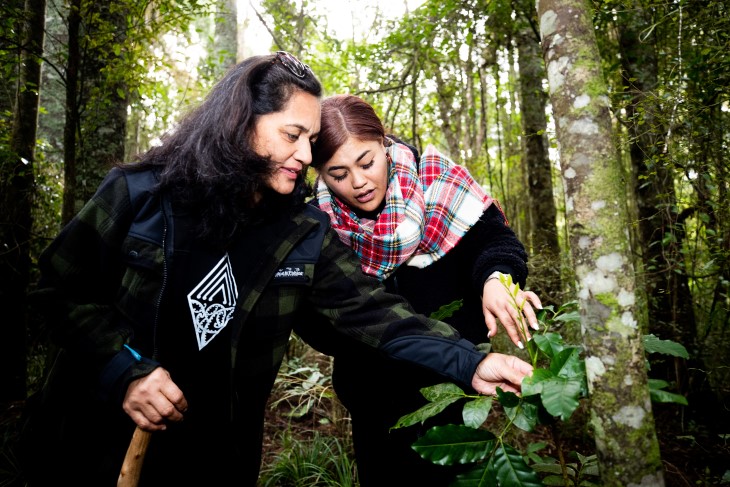Nikau's story: ACC support will change how people see rongoā
After growing up in a Pākehā world, Nikau Munroe-Rawiri (Te Aupouri, Te Rarawa, Te Waiariki, Ngātiwai) has been on a journey to find his true self. The waka (vehicle) to get him there has been his study into rongoā Māori.
Nikau Munroe-Rawiri is in the middle of the ngahere (forest) in Te Tai Tokerau (Northland) centring himself.
He can hear the native tūī, he can feel the warmth of the sun on his skin, and his deliberate breathing slows everything down. There's nowhere else he’d rather be.
The 21-year-old, from the Rangikohu marae in Herekino, has been on a journey of finding himself. Breathing techniques have helped him awaken his wairua (spirit) and mauri (life energy).
“Being back on my whenua (land) is where I feel the strongest connection,” he says.
“It's healing and restoring for me. It fills my cup which allows me to give more of myself to whatever it is I’m pursuing.”
Nikau left his job of two years to study and pursue a journey to re-connect with what he believes to be one of the most powerful forms of rongoā Māori (traditional healing) – breathing.
“I’m currently studying and experimenting with breath-work and how I can share this profound rongoā with our people,” he says.
Nikau is qualified with a diploma in rongoā Māori. He has plenty of lived experience of seeing the benefits of rongoā Māori in his friends and his whānau.
He says it’s a huge boost to know that rongoā Māori is an option for New Zealanders in their recovery from injury with ACC.
“To have ACC supporting rongoā as an option is massive - it's an option that was not there before,” he says.
“It gives rongoā more credibility and will hopefully change how people perceive rongoā.
“I hope it will help people to be more open-minded, and that people will seek this form of healing.”
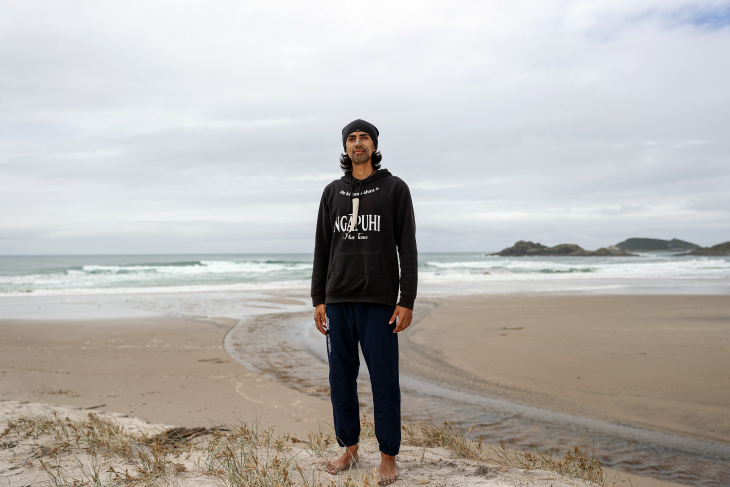
'I've been disconnected from my culture'
Nikau says it was isolating growing up in a Pākehā world. Over time, it caused him mental health issues and anxiety.
He had a watershed moment at his Auntie’s tangi (funeral).
“We were the manuhiri (visitors) on the marae, my siblings and my partner, and we were asked to respond with a kōrero. We were like stunned mullets.
“I felt this deep sense of whakamā (shame). That was a turning point for me, I knew I had to do something about it.”
Diving into rongoā Māori and learning more about te ao Māori (the Māori world) has seen him find his values.
“The biggest mamae (hurt) that I was having to face wasn’t a physical ailment, it was more so mental and spiritual. Most of my life I have been disconnected from my culture," he says.
“Just growing up I was never able to understand the ways of living through my Māori lens. I always carried a Māori lens and a Māori whakaaro and living in a Pākehā world was very hard for me.”
Being in this realm helped Nikau to connect with his culture.
“Through rongoā Māori I’ve learnt not only how to heal people, but I have learned my reo, I have learned my whakapapa, I have learned my connections to the land, I have learned my connections to the gods – ngā atua,” he says.
“For me that is a connection I’ve longed for, for so long. Rongoā Māori has grounded me in te ao Māori.”
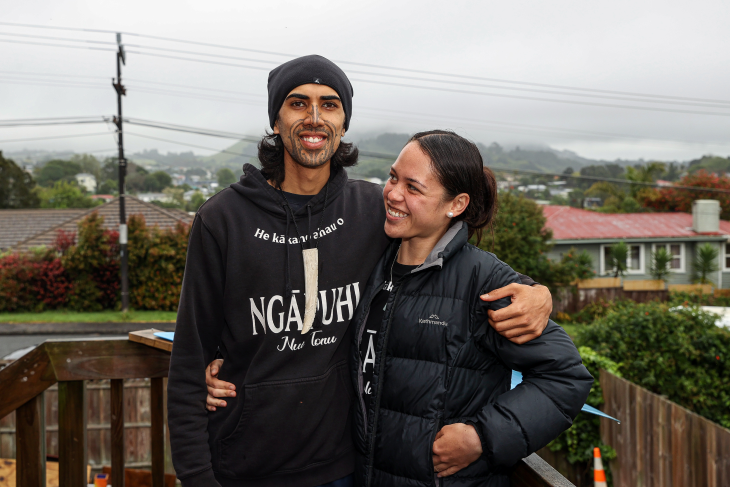
Rongoā an important form of healing
Rongoā Māori encompasses various traditional Māori healing methodologies, including mirimiri (bodywork), whitiwhiti kōrero (support and advice) and karakia (prayer).
It can include waiata (song), karakia (prayer) or having kai (food).
For Nikau, rongoā Māori is a way of living for his tūpuna (ancestors).
“It’s something that I've derived into my own life. And I try to do the best I can to live up to that.”
He says that there has been this whakaaro (thought process) that rongoā Māori pertains strictly to plant medicine.
“For me, I have always challenged that thought or that whakaaro. For me, rongoā Māori is anything that helps to uplift your mauri.”
He believes rongoā Māori is not alternative medicine.
“Rongoā Māori, and the realm within it, has been in this whenua for much longer than Western medicine,” he says.
“It has worked for our people for many, many generations. Our people need to remove the thought process that this is our alternative. It should be the first form of healing that we seek.”
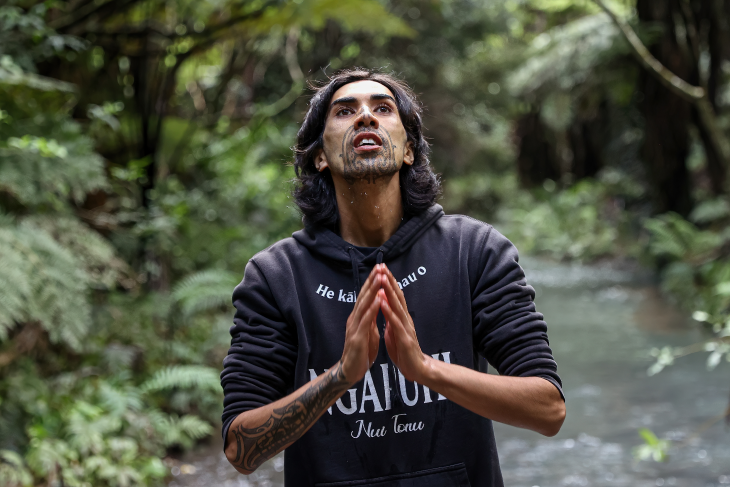
Inspiring the next generation
Maraea Hart used rongoā Māori to overcome chronic back problems.
The kuia kaumātua (female elder) helped host a rongoā Māori session at Tau Henare marae near Whangārei last year, which Munroe-Rawiri attended.
She's pleased to see the next generation invest in rongoā.
“It’s been restricted for so long and to watch the young ones come in and learn is huge,” she says.
“Their children and their children’s children will carry it on.”
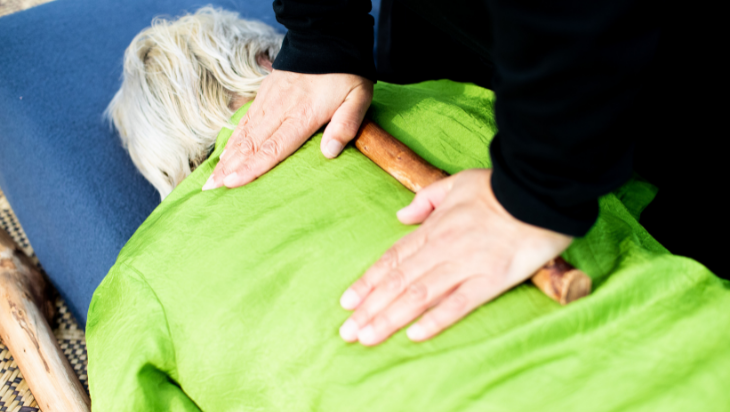
Making a difference for Māori
Rongoā Māori has been offered as a service by ACC since June 2020.
If ACC agrees to provide cover for a person’s injury, they can request rongoā Māori as part of their rehabilitation.
As of August 2023, ACC had partnered with more than 160 rongoā practitioners (from Kaitāia to Rakiura) to deliver over 49,000 rongoā sessions for around 6,400 kiritaki (clients).
ACC data shows rongoā Māori claim volumes have more than doubled since the same time last year – there were more than 27,000 rongoā sessions delivered in the 12 months to July 2023.
Over the same period, the number of ACC-registered rongoā practitioners around Aotearoa has increased by 50 per cent.
We acknowledge that not all New Zealanders have been accessing ACC's services equally. This is something we are committed to changing.
Making it easier to access ACC
There are a number of barriers for Māori accessing ACC support.
“My team is focused on improving access, experience and outcomes for Māori. To do this successfully, we need to lean into the inequities we see for Māori and address them one by one,” says Eldon Paea, ACC's Manager of Māori Health Services.
“We are understanding the circumstances and making purposeful changes to ensure that the resources and opportunities are directed towards those that truly are in need. We hope by doing this we will be removing access barriers and ensuring that Māori receive the services that they are entitled to.
“When we make choice available, people will engage or even reengage with the health system that they had previously given up on. Overcoming these barriers to improving health outcomes for Māori will not be the same for all Māori.
“We need to create a way forward with more pathways and to bring light to other service options. This is why ACC is developing Kaupapa Māori Health Services, creating indigenous, localised, whānau-centred solutions designed by Māori, with Māori, underpinned by tikanga and delivered by Māori providers, primarily for Māori but available to all.
"Our wero is for Māori that have an injury to have greater access to services, improved experience of ACC care and better health outcomes. The work has started but we have a long way to go”.
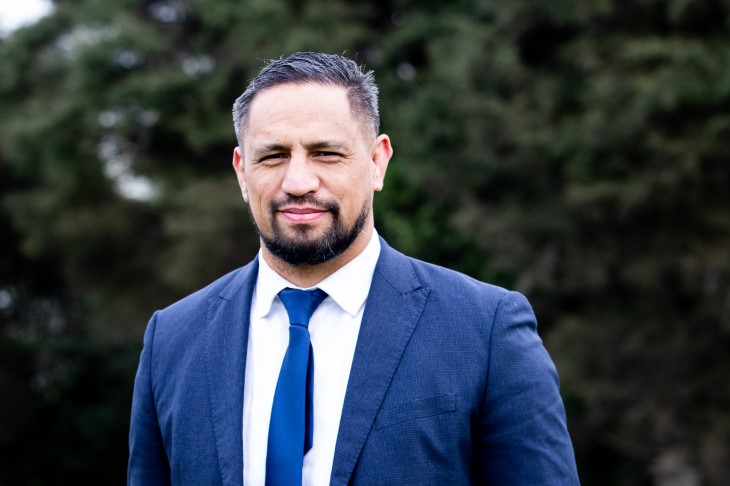
ACC and rongoā Māori
- As of July 2023, we've partnered with more than 150 rongoā practitioners (from Kaitaia to Stewart Island) to deliver over 45,900 rongoā sessions for around 6,000 kiritaki (clients).
-
ACC data shows rongoā Māori claim volumes have more than doubled since the same time last year – there were more than 27,000 rongoā sessions delivered in the 12 months to July 2023.
- Over the same period, the number of ACC-registered rongoā practitioners around Aotearoa has increased by 50 per cent.
- Of those accessing rongoā Māori through ACC, 61 per cent are Māori and 72 per cent are female.
For more information please visit the rongoā Māori section of our website.




